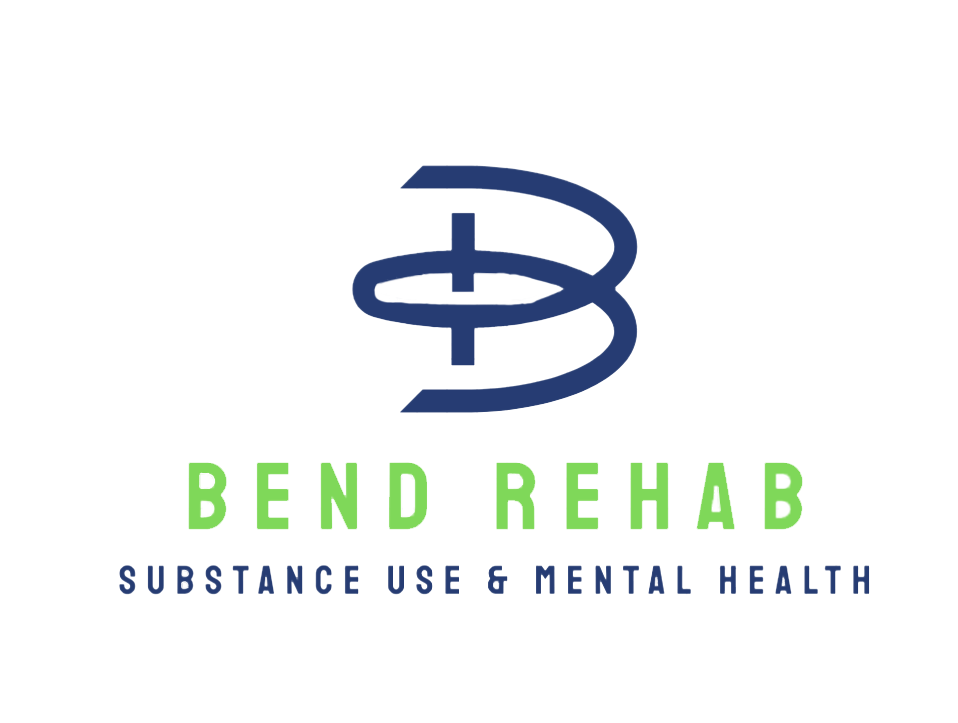Alcohol Rehab in Bend OR
Alcohol addiction is a widespread struggle faced by millions of individuals and families around the world. It’s not just the person battling addiction who suffers—the impacts ripple out to loved ones, relationships, and entire communities. The emotional, financial, and social toll of addiction can be overwhelming, making it even more crucial to seek a path to recovery. For those affected, finding professional help is often the turning point that provides the guidance, resources, and support needed to reclaim a healthier, happier life. If you or someone you care about is battling alcohol addiction, the road to recovery might begin with alcohol rehab in Bend OR. Professional rehab programs in Bend offer a comprehensive approach, combining medical care, therapy, and aftercare planning to address not only the physical dependence but also the emotional and psychological aspects of addiction. These services are designed to meet individuals where they are in their journey, creating personalized treatment plans that fit their unique needs. This article explores the transformative power of professional rehab services, the importance of seeking treatment early, and the unique benefits of Bend’s rehab facilities, including the serene environment and supportive community that make it an ideal place to heal and rebuild. Recovery is possible, and it might just start here.
Understanding Alcohol Addiction
Before discussing the role of rehab, it’s crucial to understand what alcohol addiction is and the profound ways it impacts individuals. Alcohol addiction, also known as alcohol use disorder, is a chronic condition characterized by an inability to control alcohol consumption despite negative consequences. It affects not only physical health but also mental well-being, relationships, and overall quality of life. The condition often leads to a cycle of dependency, making it increasingly difficult for individuals to quit without proper support and intervention. Understanding the nature and effects of alcohol addiction is key to appreciating the importance of rehabilitation in the recovery process.
What is Alcohol Use Disorder (AUD)?
Alcohol use disorder (AUD), commonly referred to as alcohol addiction, is a chronic condition characterized by a compulsive urge to consume alcohol despite experiencing harmful consequences to one’s health, relationships, or responsibilities. This disease not only impacts behavior but also alters brain structure and function over time, making it increasingly difficult for individuals to control their drinking. AUD can range from mild to severe, with symptoms including cravings, withdrawal, and the inability to stop drinking even when it interferes with daily life. Left untreated, it can lead to serious physical and mental health complications, highlighting the importance of seeking early intervention and support. Symptoms of AUD may include:
- Experiencing strong and persistent cravings for alcohol that can feel difficult to resist, often leading to a preoccupation with drinking.
- Difficulty limiting alcohol consumption, often leading to drinking more than intended in social settings or at home.
- Developing a tolerance to alcohol, which means needing to consume increasingly larger amounts to achieve the same effects as before, potentially leading to more frequent or heavy drinking.
- Experiencing withdrawal symptoms, such as anxiety, tremors, sweating, nausea, or irritability, when alcohol use is reduced or stopped completely
Consequences of Long-Term Alcohol Addiction
1. Physical Health Risks
Prolonged alcohol abuse can lead to devastating health problems, including:
- Liver diseases such as cirrhosis, a condition where scar tissue gradually replaces healthy liver tissue, or hepatitis, an inflammation of the liver often caused by viral infections or excessive alcohol use
- Increased risk of cancer, including esophageal, liver, and breast cancer, due to prolonged exposure to harmful substances or behaviors that can damage cells and lead to abnormal growth over time.
- Cardiovascular conditions, including high blood pressure, heart disease, and related disorders, which can affect the heart and blood vessels, leading to serious health complications if left unmanaged
- Neurological disorders or cognitive impairments, such as Alzheimer’s disease, Parkinson’s disease, or traumatic brain injuries, which can impact memory, reasoning, and overall brain function.
2. Mental Health Challenges
Alcohol addiction often co-occurs with mental health conditions such as depression, anxiety, or PTSD, creating a complex cycle that can be difficult to break. For many, alcohol is used as a way to self-medicate and temporarily numb emotional pain, but over time, it can worsen underlying mental health issues. Alcohol can exacerbate mood disorders, intensify feelings of hopelessness, and lead to deeper emotional struggles, including isolation, guilt, and shame. The combination of addiction and mental health challenges often requires a comprehensive approach to treatment that addresses both issues simultaneously.
3. Social and Financial Strain
Addiction doesn’t only harm the individual; it also fractures relationships, disrupts families, and leads to significant financial hardships that can take years to repair. The ripple effects of addiction often extend beyond the individual, impacting loved ones and creating an environment of stress, fear, and instability. Additionally, behaviors such as driving under the influence or intoxication-related violence can pose serious harm to others, sometimes with devastating and lifelong consequences. Recognizing the severity of these outcomes and taking action is essential. Seeking professional help from alcohol rehab in Bend OR, provides the support, tools, and guidance needed to break free from the cycle of addiction and rebuild a healthier, more stable future.
The Role of Rehab in Overcoming Alcohol Addiction
Recovering from alcohol addiction is a complex, multilayered process that goes beyond simply quitting drinking. It requires professional expertise to address the physical, psychological, and emotional aspects of addiction, structured support systems to provide guidance and encouragement, and a personalized approach tailored to an individual’s unique needs and circumstances. This is where alcohol rehab plays a crucial role, offering a safe and supportive environment to help individuals rebuild their lives and achieve long-term sobriety.
Detoxification (Detox)
The first step in most rehab programs is detox, a medically supervised process designed to safely remove alcohol from the body and prepare individuals for the next stages of recovery. This phase is critical, as it helps to manage the physical dependence on alcohol and begins the journey toward sobriety. During detox, individuals may experience withdrawal symptoms such as nausea, anxiety, sweating, tremors, or even seizures, depending on the severity of their addiction. These symptoms can be challenging and sometimes dangerous, but medical professionals in rehab facilities are trained to monitor and support patients 24/7. They use personalized care plans, medications when necessary, and a range of comfort measures to ensure safety and ease through this challenging yet essential phase of recovery. Detox serves as the foundation for long-term healing, making it a key component of most rehabilitation programs.
Therapy and Counseling
Rehabilitation involves more than just treating physical dependency; it’s about addressing the complex mental, emotional, and behavioral aspects of addiction. Therapy plays a central role in recovery programs, helping individuals uncover and address the underlying causes of their addiction while building healthier coping mechanisms. These therapy sessions aim to provide tools for long-term recovery and emotional resilience. Types of therapy offered may include:
- Individual Counseling: Offering one-on-one support to help individuals uncover the underlying causes of their addiction, address emotional or behavioral triggers, and develop personalized coping strategies to navigate challenges and maintain long-term recovery.
- Group Therapy: Fostering a sense of belonging and shared growth among peers in recovery by providing a supportive environment where individuals can share experiences, build connections, and learn from one another’s journeys. This collaborative approach promotes emotional healing and mutual encouragement.
- Family Therapy: Strengthening bonds, resolving conflicts, and fostering healthy communication to mend relationships. This approach creates a supportive and understanding environment, essential for achieving and maintaining lasting sobriety.
Relapse Prevention and Education
Rehab equips individuals with essential tools to achieve and maintain long-term sobriety. It provides a structured environment where participants can focus on their recovery journey, away from the distractions and temptations of daily life. Through therapy and counseling, individuals learn to identify and understand their personal triggers, develop strategies to manage cravings, and adopt healthier lifestyle practices that promote physical and emotional well-being. Life skills training, such as time management, stress reduction, and effective communication, is often included to help individuals navigate everyday challenges more confidently. Additionally, education on relapse prevention equips participants with the knowledge and strategies needed to recognize early warning signs and stay on track. These combined efforts work to empower individuals to build a stable, fulfilling, and alcohol-free future.

Aftercare Services
Rehabilitation doesn’t end after completing treatment; it’s an ongoing journey. Many facilities in Bend, OR, provide comprehensive aftercare programs designed to support individuals as they transition back into everyday life. These programs may include continued therapy sessions to address underlying issues, access to support groups for shared experiences and encouragement, and sober living environments that offer a safe, structured space to reinforce healthy habits. By focusing on long-term recovery, these resources help individuals maintain their progress and build a strong foundation for a healthier future.
Why Choose Alcohol Rehab in Bend OR?
Bend, OR, is well-known for its serene scenery, outdoor recreational opportunities, and welcoming community—making it an ideal backdrop for individuals seeking recovery. Surrounded by the natural beauty of mountains, rivers, and forests, Bend offers a calming environment that supports healing and self-reflection. Local alcohol rehab in Bend OR provide a wide range of tailored services, including personalized treatment plans, counseling, and holistic therapies, all designed to meet the unique needs of each individual. With access to experienced professionals who are dedicated to helping individuals achieve lasting sobriety, these programs combine expert care with the restorative power of Bend’s tranquil setting to foster recovery and growth.
Benefits of Seeking Alcohol Rehab in Bend OR
1. Professional Support
Rehab centers in Bend employ highly trained medical and mental health professionals who provide compassionate care and guidance every step of the way. These experts create personalized treatment plans, offering support through detox, therapy, and recovery programs to help individuals regain control of their lives and achieve lasting wellness.
2. Personalized Care Plans
Each person’s recovery process is unique, requiring a personalized approach to ensure the best outcomes. Rehab programs in Bend take this into account by developing customized treatment plans tailored to address each individual’s specific needs, goals, and challenges. These programs focus on providing comprehensive support, combining therapy, counseling, and holistic care to help individuals overcome obstacles and build a solid foundation for lasting recovery.
3. Safe and Controlled Environment
The inpatient facilities in Bend offer calm, distraction-free environments designed to help individuals focus entirely on their recovery. These spaces provide a safe haven, removing individuals from the stressors and triggers of daily life that could hinder their progress. With a structured setting and dedicated support, patients can fully concentrate on healing and building the tools needed for long-term success.
4. Community Connections
Rehabilitation in Bend fosters connection among recovering individuals through group therapy sessions and local support networks, helping participants share their experiences, challenges, and successes. These programs create a built-in community of encouragement, offering a safe space where individuals can build meaningful relationships, develop coping strategies, and find motivation to stay on track throughout their recovery journey.
5. Scenic and Healing Setting
Bend’s natural beauty, with its stunning mountain views, crisp, refreshing air, and countless outdoor opportunities, provides the perfect setting for relaxation and renewal. Whether hiking along scenic trails, breathing in the fresh pine-scented breeze, or simply taking in the serene landscapes, Bend offers a soothing environment to heal both physically and emotionally, allowing visitors to reconnect with nature and find peace amidst its tranquil surroundings.
Conclusion
While alcohol addiction can feel overwhelming, recovery is within reach, and you don’t have to face it alone. The first step is making the courageous decision to seek professional help. Alcohol rehab in Bend OR, offers a proven path to healing, providing access to compassionate experts who understand the challenges of addiction. These rehab programs combine evidence-based therapies, tools for achieving and maintaining sobriety, and a supportive community that helps you every step of the way. Many facilities also offer personalized treatment plans to address your unique needs, ensuring the best possible outcome. If you or a loved one is battling alcohol addiction, now is the time to act. Don’t wait—reach out to our staff today by calling 1 (541) 802-7214 or click Bend Rehab. A healthier, more fulfilling life is possible, and it starts with taking that first step.




